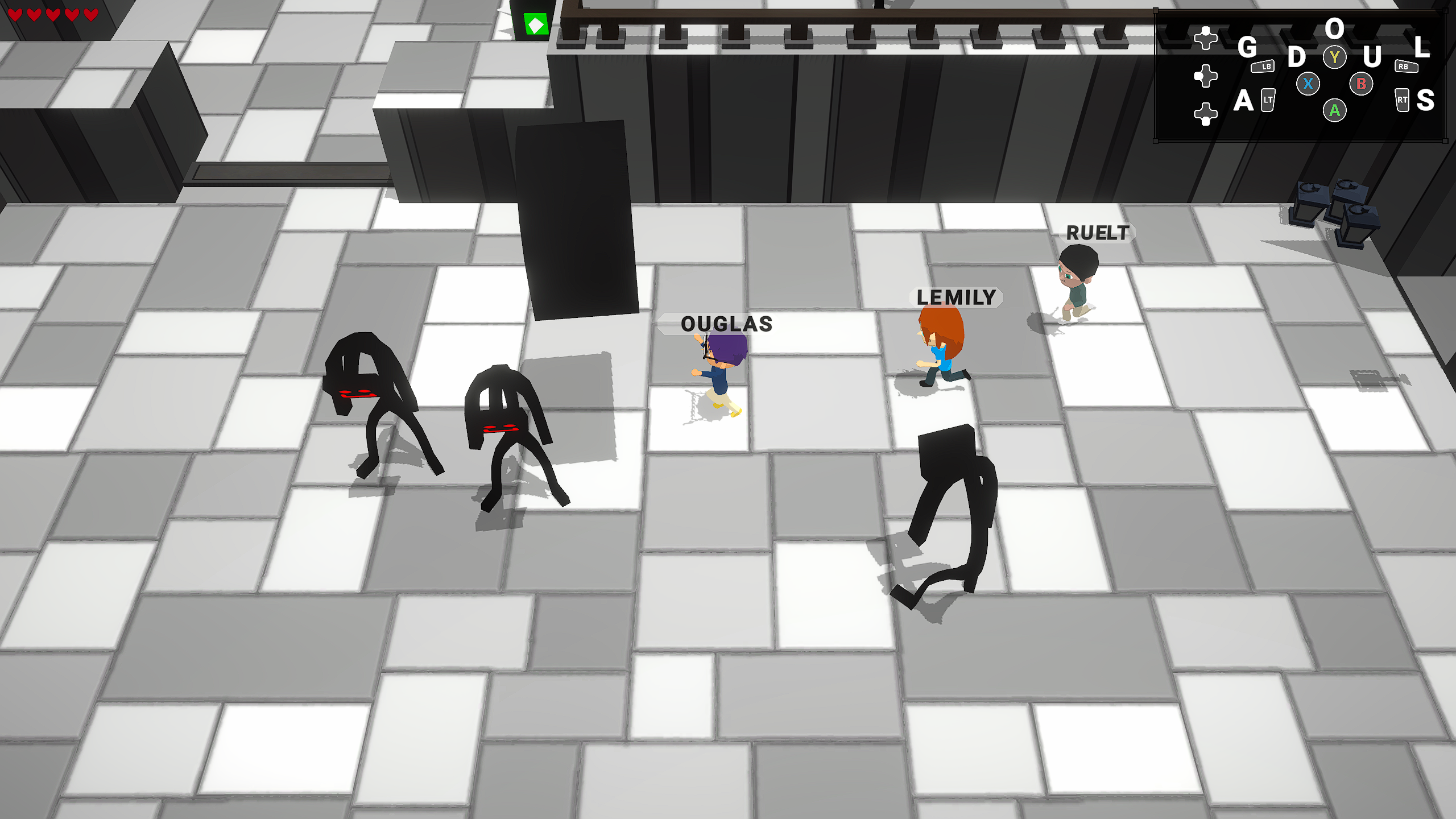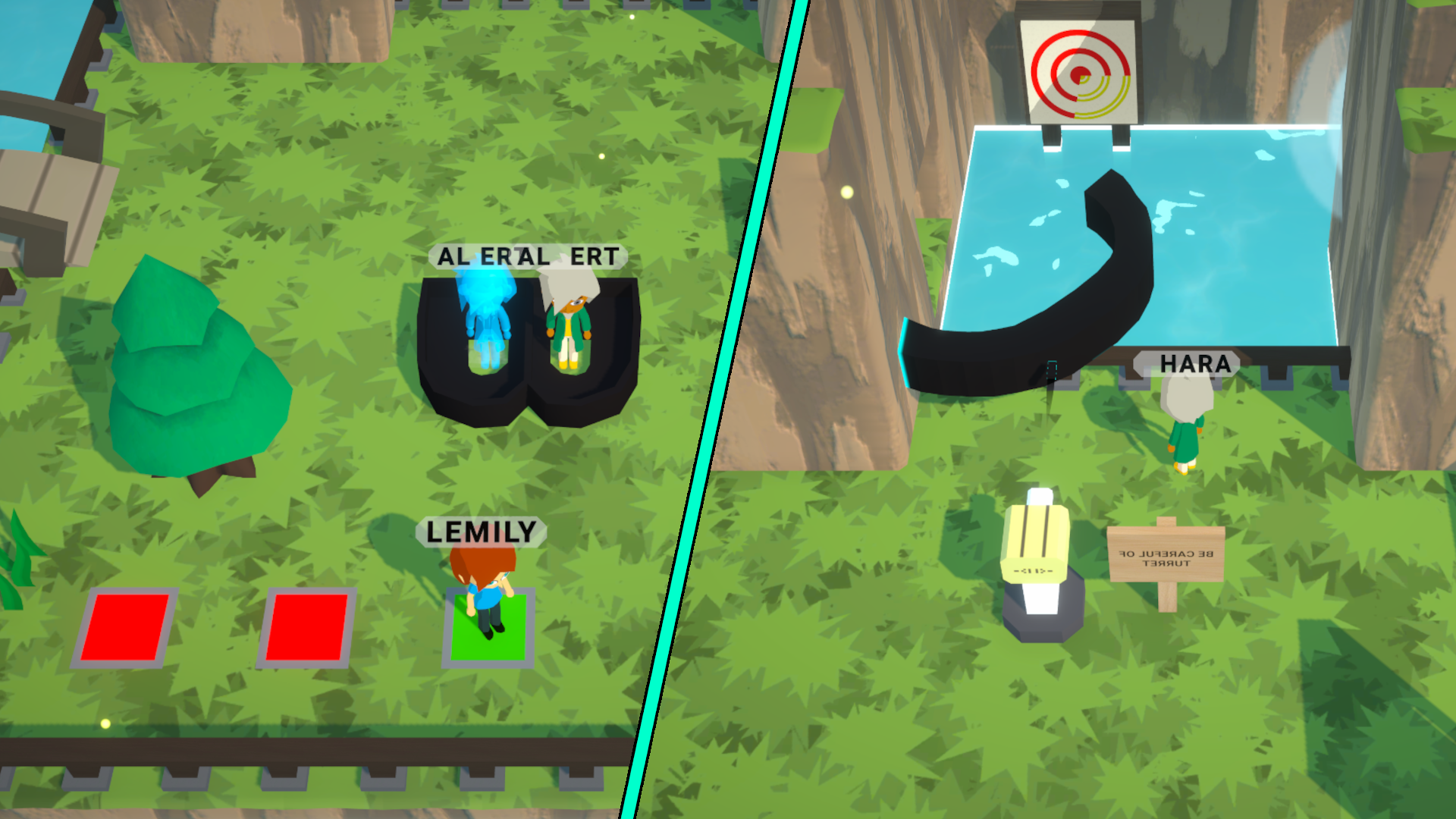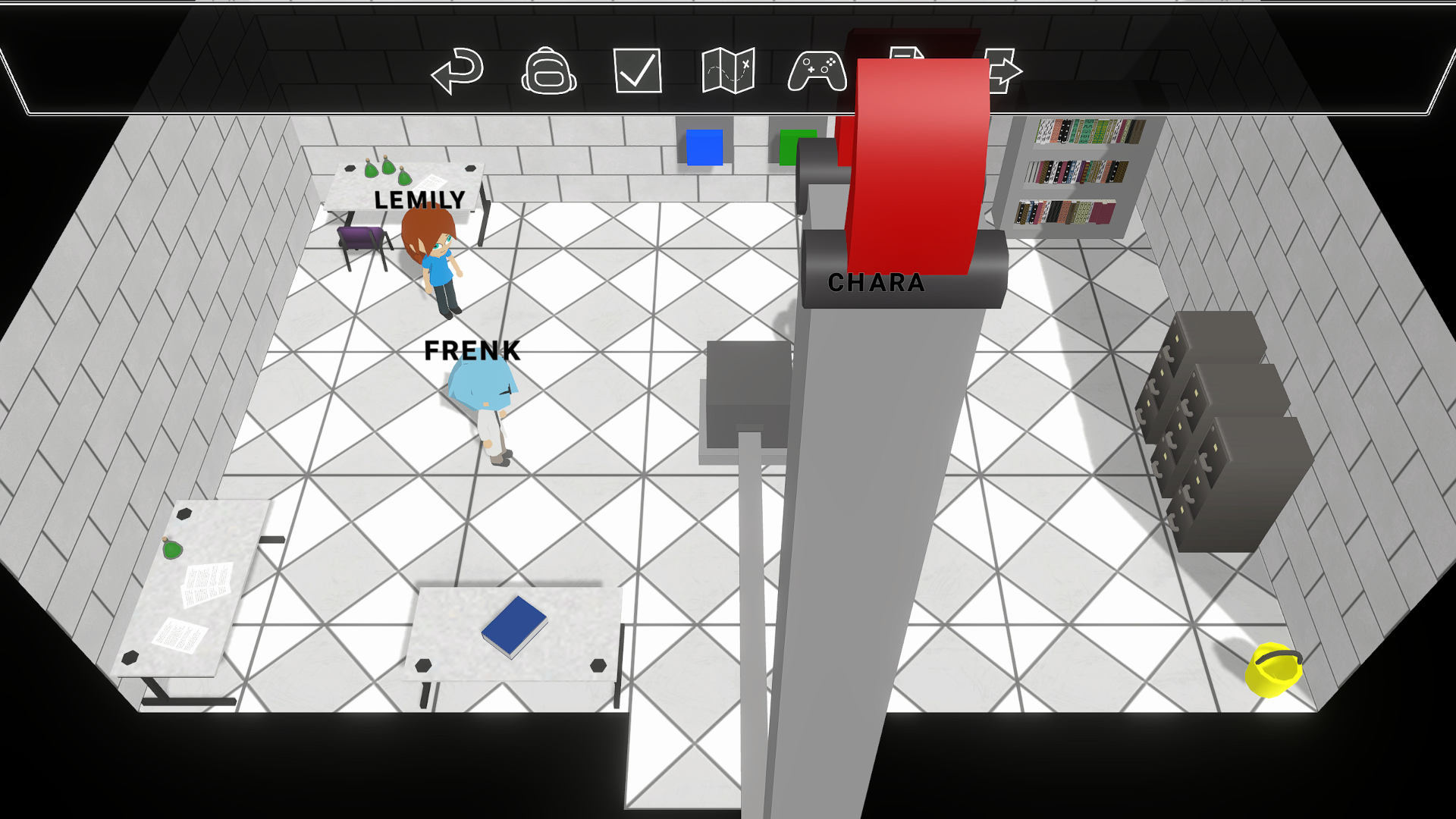Possibility Explosion: Designing Around Name Selection Actually Mattering
What if choosing a name at the start of a game was actually important? That's the central idea behind South Words Hero, an idea that proved a lot more ambitious that I originally intended. And now, with a demo of the first chapter released here and on Steam, I figured I'd share some of the unique challenges that come with building such a game.
26 Abilities
Years ago, some friends and I were doing some impromptu role playing, kind of like D&D but without any clear rules. With no time to actually prepare, one of the characters that came out of this was Philip, with one L because an evil wizard stole the other. This character would attack people by "summoning the power of the other L." It was nonsense, but the idea of using the letters of your name as weapons stuck with me.
Skip ahead a few years, and I began entertaining the idea further by designing 26 abilities, one for each letter. Surprisingly, the abilities in the demo are pretty much the same as those original ideas, with only slight adjustments. Still, implementing all of those took time, and most players would only see about 1/4 of them each playthrough. It was certainly not the most efficient way to design a game.
I tried to use the shapes of the letters themselves, so J becomes a hook for grabbing distant items, and S becomes a wavy attack that can snake around obstacles before it hits its target. But the main goal was to make every possible name viable. This is the part I suspect many people are skeptical of, because when I share the main premise with people, I usually get questions like, "Why not pick a really long name with all the letters?" or "If my name has double letters, is the second letter useless?" These questions had straightforward solutions (unused letter slots give bonus HP and double letters increase range/reduce cooldown), and the hardest challenge was how to make all of these abilities actually useful, when players may or may not have access to them.

A Multiverse of Names
To make sure letters actually have a use, one option was to allow multiple solutions to the same problem, similar to what we see in the more recent Zelda games. This works to an extent, such as in combat where many letters deal damage in different ways. However, this really limits the kinds of challenges I can put on the main story path, and the kinds of limitations I can give each letter. Every letter would have to deal damage, or I'd need to add a way to get past such encounters without using letters.
The solution: change the obstacle. If it's only possible to solve a problem if you have an A or a V in your name, only spawn that obstacle for players with those letters. And if they don't have those letters, spawn something else based on what they do have.
This quickly became a mess of conditional events that regex match against the name. The very first obstacle, a "tutorial" that lasts just a few seconds, has nine different versions. And most people only see one! This is the main reason why it's taking me so long to make this, but it's really fun watching people notice how specific to their names the game sometimes gets and then realize the scope of what they're not seeing.

Writing Around the Possibilities
Between treating the abstract idea of names as something you can swing around, and giving each player a slightly different world to explore, this started to get a bit weird and contrived. This isn't full procedural generation like you'd see in a roguelike, but neither is it a single linear adventure. Instead, it's little nudges and second playthrough surprises. I think this structure works well for the kind of story-around-the-story 4th-wall-breaking narrative you get in games like Undertale, Oneshot, and Slay the Princess, so I started writing a similar story structure.
How this all connects won't be clear until later chapters, but within the demo I already started to have fun blurring the line between "game logic" and the diegetic world. Houses are bigger on the inside. Instead of audible speech, text bubbles are visible to all. My approach to much of the worldbuilding was asking myself, "What if we take this weird game thing literally?"
I also added lots of random events that are seeded by your name. A line of dialogue here, and color swap there. Little things you wouldn't immediately notice are specific to your playthrough. The goal is to create the feeling on a second playthrough of stepping into an alternate universe where everything is just a little off from what you know.
Conclusion
To add replayability, most games either rely on systems and procgen to let players create their own stories, or they tease missed content by being clear about when a story branches. By obfuscating the branches behind something not usually seen as a meaningful choice, I've spent a lot of time making things few people will see. This makes it hard to recommend trying to make this kind of game. However, it's been a fun project, and I hope what people do find in the demo is interesting to them.
The full game is still a long way off, and I plan to continue improving the first chapter as well. Thanks for reading this, and if you played the demo, I'd love to hear what you think.
Files
Get South Words Hero (Part 1)
South Words Hero (Part 1)
Important question: What is your name?
| Status | Released |
| Author | tykenn |
| Genre | Adventure |
| Tags | 3D, Action-Adventure, Character Customization, Comedy, Experimental, Exploration, Fantasy, Narrative, Parody, Third Person |
| Languages | English |

Leave a comment
Log in with itch.io to leave a comment.